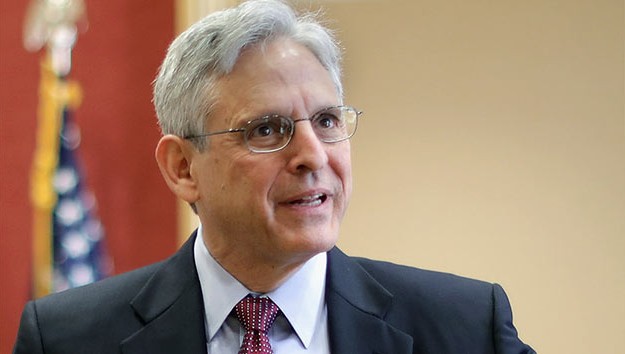
 Chip Somodevilla/Getty Images(WASHINGTON) — President Obama nominated federal judge Merrick Garland to the Supreme Court this spring after Justice Antonin Scalia’s unexpected death.
Chip Somodevilla/Getty Images(WASHINGTON) — President Obama nominated federal judge Merrick Garland to the Supreme Court this spring after Justice Antonin Scalia’s unexpected death.
Now that Donald Trump is the president-elect, the path forward for Garland is extremely unlikely.
ABC News spoke to Supreme Court contributor and Cardozo law professor Kate Shaw on what this election means for Obama nominee Garland.
Question: Let’s start by setting the scene. Where do things stand with Merrick Garland right now?
Answer: Garland, 63, the Chief Judge of the D.C. Circuit Court of Appeals, has been in limbo since President Obama nominated him in March to fill the vacancy created by the death of Justice Antonin Scalia. Garland has now been waiting for a confirmation hearing for 237 days, which makes him the longest-pending Supreme Court nominee in history, by a very wide margin.
“This is the greatest honor of my life,” Garland said during his nomination announcement. “For me, there could be no higher public service than serving as a member of the U.S. Supreme Court.”
Q: And why hasn’t he had a hearing yet?
A: Beginning just hours after news of Justice Scalia’s death broke, Senate Majority Leader Mitch McConnell, quickly followed by Judiciary Committee Chairman Chuck Grassley, have consistently taken the position that because this vacancy occurred during an election year, the next president should be the one to pick Justice Scalia’s replacement.
Most Republican senators have supported the strategy, even those who have been opposed to Republican nominee Donald Trump. Because the Republicans control the Senate, they’re in charge of scheduling hearings, and so far they’ve refused to do that for Garland.
Q: With Donald Trump as the president-elect and the Republicans still in control of the Senate, what does that mean for Garland?
A: Absent something wildly unexpected, Garland will go back to being Chief Judge of the D.C. Circuit, and, after inauguration, Trump will nominate someone new to fill the vacancy. He’s put out two lists of prospective nominees, both primarily populated by conservative sitting judges. The women on the lists are especially interesting, given Trump’s electoral deficit among women voters. So you have to imagine that Justice Joan Larsen, of the Michigan Supreme Court and a former law clerk to Justice Scalia, would be high on the list the transition team will look at. A less well-known but very intriguing possibility is Margaret Ryan, a former active-duty Marine, law clerk to Justice Thomas, and judge on the Court of Appeals for the Armed Forces.
Q: Why wasn’t he confirmed before the election?
A: Well, it’s certainly not personal. It’s virtually impossible to find a person in Washington with anything bad to say about Garland. In an op-ed, the president Obama called him “a distinguished legal mind, a dedicated public servant and a good and decent man” – and I think even many GOP Senators would agree with that.
But Senate Majority Leader Mitch McConnell, R-Ky., and Judiciary Committee Chairman Chuck Grassley, R-Iowa, have taken the position that because the vacancy occurred during an election year, the next president should be the one to pick the next justice.
Though there have been a couple of defections, most Republican senators have supported the strategy. The Republicans control the Senate, so they get to schedule hearings, and they’ve refused to do so with Garland. And, at least nowadays (this wasn’t always the case), no hearing means no confirmation.
Q: When does his nomination expire?
A: The nomination expires when the Senate adjourns sine die; that is, the end of this congressional session, likely sometime in mid-December.
Copyright © 2016, ABC Radio. All rights reserved.










